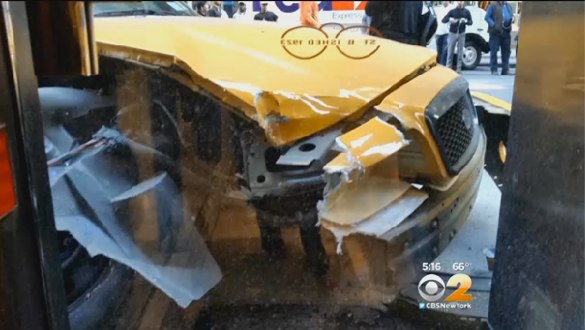A Vision Zero law intended to get dangerous cab drivers off the road has been applied just two times since it took effect nine months ago, according to the New York Press.

Adopted last September, Cooper's Law gives the Taxi and Limousine Commission discretion to suspend or revoke the TLC license of a cab driver convicted of a traffic violation or a crime following a crash that causes death or critical injury. The law was named after Cooper Stock, a 9-year-old Manhattan boy who was fatally struck by a yellow cab driver who failed to yield.
In a recent story on the Transport Workers Union's campaign to weaken traffic safety laws, New York Press reporter Daniel Fitzsimmons spoke with Dana Lerner, Cooper’s mother, about the law named after her son. “An investigation by this paper found that since the law went into effect nine months ago," Fitzsimmons wrote, "it has only been used twice.”
According to agency crash data issued in compliance with city transparency laws, TLC-licensed vehicles were involved in over 18,000 crashes between last October and March of this year. TLC drivers were involved in eight crashes resulting in critical injury, and five crashes resulting in death, during that period.
Of the crashes that caused death or critical injury, NYPD determined three cab drivers to be at fault. The agency reported that the TLC licenses of all three drivers were “summarily suspended” -- but not revoked, as Cooper's Law allows for. It is conceivable that not a single cab driver has lost his TLC license under Cooper's Law after injuring or killing someone.
Before Cooper’s Law took effect, Streetsblog reported that its effectiveness would depend on NYPD, which rarely tickets or charges drivers involved in serious crashes. TLC Commissioner Meera Joshi confirmed months later that application of the law would hinge on how often NYPD issues summonses and charges.
We contacted TLC to confirm that the agency has used Cooper's Law just two times. We'll update this story if we get a response.





